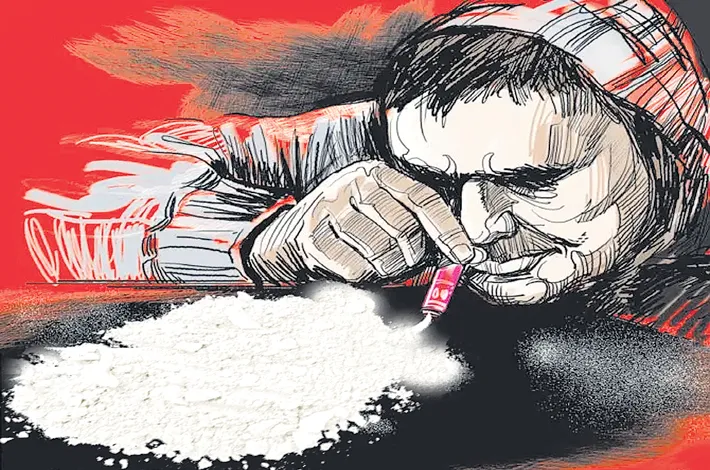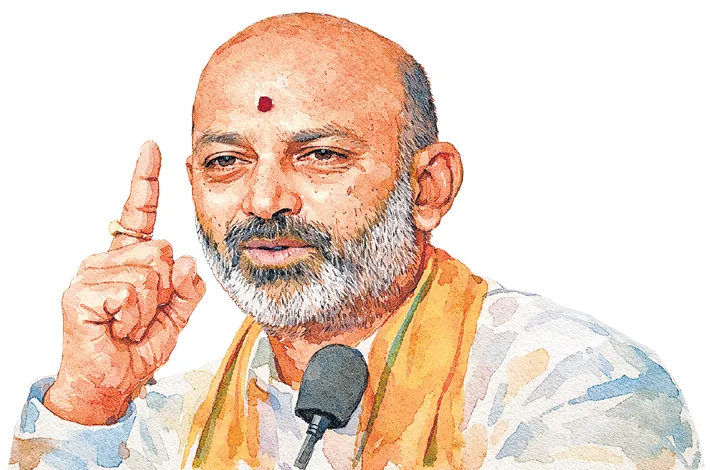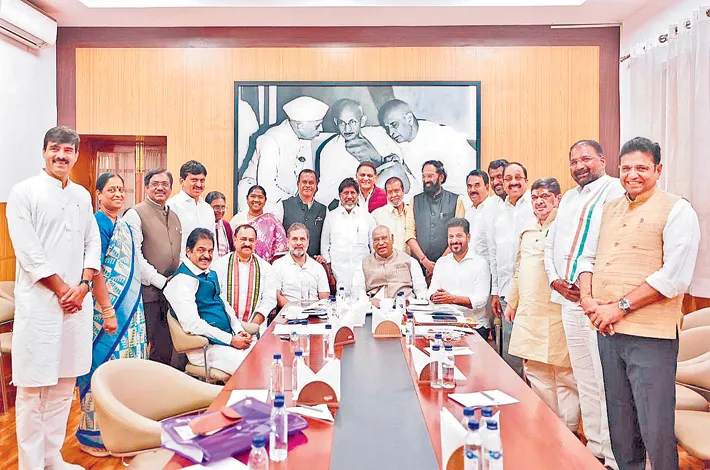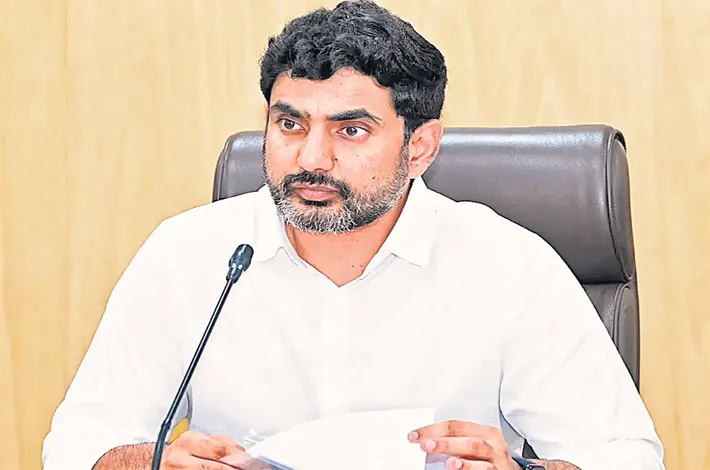PVB Raids Over 20 Akali Leaders’ Homes in Drug Crackdown
26-06-2025 12:00:00 AM

The Punjab Vigilance Bureau, in coordination with the state police, launched the operation in the early hours of Wednesday, targeting properties in Amritsar, Patiala, Ludhiana, and other districts
metro india news I amritsar
In a sweeping move to combat the persistent drug menace plaguing Punjab, the Punjab Vigilance Bureau conducted raids on the residences of more than 20 leaders associated with the Shiromani Akali Dal (SAD) on Wednesday. The high-profile operation, which included a raid on the Amritsar residence of senior Akali leader and former minister Bikram Singh Majithia, marks a significant escalation in the state government’s ongoing "War Against Drugs" under Chief Minister Bhagwant Mann.
The raids, executed across multiple locations in Punjab, have sparked intense political reactions, with accusations of vendetta politics flying from the opposition, while the ruling Aam Aadmi Party (AAP) insists the action underscores its commitment to a drug-free Punjab.
The Punjab Vigilance Bureau, in coordination with the state police, launched the operation in the early hours of Wednesday, targeting properties in Amritsar, Patiala, Ludhiana, and other districts. According to official sources, the raids were part of an investigation into alleged links between political figures and drug trafficking networks, with a focus on gathering evidence under the Narcotic Drugs and Psychotropic Substances (NDPS) Act.
Among the most prominent figures targeted was Bikram Singh Majithia, a three-time MLA and a key figure in the SAD, who was taken into custody for questioning following a search at his Green Avenue residence in Amritsar. The operation involved approximately 12,000 police personnel and resulted in the arrest of 290 drug smugglers across the state, with 232 FIRs registered and significant quantities of narcotics seized, including 8.14 kg of heroin, 1.21 kg of opium, and 16,238 intoxicant tablets.
The raids come as part of a broader anti-drug campaign, "Yudh Nashe Ke Viruddh" (War Against Drugs), initiated by the AAP government after assuming power in 2022. Punjab Chief Minister Bhagwant Mann has repeatedly emphasized his administration’s goal of making Punjab drug-free within a stipulated timeframe, with a recent deadline set for May 31, 2025.
The operation follows the formation of a five-member cabinet sub-committee in March 2025 to oversee the crackdown, which has intensified efforts to dismantle drug networks allegedly protected by political patronage during previous administrations. Punjab Minister Harpal Singh Cheema, addressing the media, stated, “No person in the state is above the law. Previous governments pushed Punjab’s youth towards drugs, but our campaign ensures strict action against anyone involved in the drug trade, regardless of their position.”
The focus on Akali leaders, particularly Majithia, has reignited long-standing allegations of political complicity in Punjab’s drug crisis. Majithia, the brother-in-law of SAD President Sukhbir Singh Badal, has been under scrutiny since 2021, when he was booked under the NDPS Act based on a 2018 Special Task Force (STF) report. The report, submitted by then-ADGP Harpreet Singh Sidhu, alleged connections between certain political figures and drug traffickers.
In 2022, Majithia secured interim bail from the Punjab and Haryana High Court, which observed no direct evidence of contraband possession or trafficking linked to him. However, the Supreme Court in March 2025 directed him to cooperate with a Special Investigation Team (SIT) in Patiala, a directive that the state government claimed he had resisted, prompting Wednesday’s raid. The scale of the drug problem in Punjab remains alarming. A 2024 report highlighted 6.6 million drug users in the state, including 697,000 children aged 10-17,
with Punjab’s proximity to the "Golden Crescent" (Afghanistan, Iran, and Pakistan) fueling the influx of heroin and synthetic drugs. The state government’s response has included not only enforcement actions but also preventive measures like strengthening de-addiction centers and launching awareness campaigns. However, critics argue that the raids on Akali leaders may be politically motivated, especially given their timing ahead of anticipated elections.
The SAD has vehemently denounced the raids as an act of "political vendetta" by the AAP government. SAD leader Daljit Singh Kler stated, “For years, they have leveled baseless allegations against Bikram Singh Majithia, but no evidence has been found. The Supreme Court dismissed their case, yet they continue to harass us to suppress the truth.” The party has accused the AAP of diverting attention from its own governance failures by targeting opposition leaders. Similarly, Punjab Congress leaders have questioned the timing, with some alleging that the AAP is attempting to consolidate its voter base by dramatizing the drug issue.
AAP leaders, however, have rejected these claims. Cabinet Minister Kuldeep Singh Dhaliwal emphasized that the raids were part of a broader operation covering 25 locations across Punjab, not solely targeting Akali leaders. “This drug issue began under the Akali-BJP government and was neglected by the Congress. Our police and vigilance teams are acting impartially to root out the menace,” he said. The government has also pointed to its track record, noting that over 30,000 NDPS cases have been registered in the past three years, with an 85% conviction rate, up from 55% before 2022.
The raids have drawn mixed reactions from the public. While some residents of Punjab, particularly in drug-affected border districts, have welcomed the aggressive action, others remain skeptical, citing the need for systemic reforms beyond high-profile raids. Experts, such as Amit Kumar, an Assistant Professor at the Institute for Development and Communication in Chandigarh, argue that Punjab’s drug problem requires a multi-pronged approach. “Aggressive raids alone won’t suffice. The government must address unemployment, corruption, and lack of awareness while strengthening rehabilitation and reintegration programs,” Kumar noted.
The operation has also highlighted the challenges of policing in a state where allegations of a police-politician-drug lord nexus have persisted for decades. Former Punjab DGP (Prisons) Shashi Kant had alleged in 2013 that senior politicians from the SAD, BJP, and Congress were complicit in the drug trade, claims that have resurfaced with these raids. The state government’s recent moves, including the transfer of over 10,000 police personnel and the detention of 100 officers involved in smuggling, signal an attempt to address internal corruption.
As the investigation unfolds, the raids on Akali leaders’ homes are likely to remain a flashpoint in Punjab’s volatile political landscape. For the AAP government, the operation is a test of its commitment to eradicating the drug menace, while for the SAD, it represents a challenge to its influence and reputation. With Punjab’s youth caught in the crosshairs of addiction and political rivalries, the outcome of this crackdown will have far-reaching implications for the state’s future.








